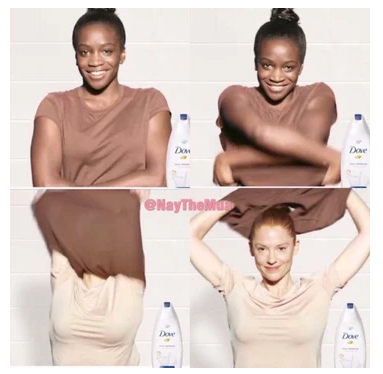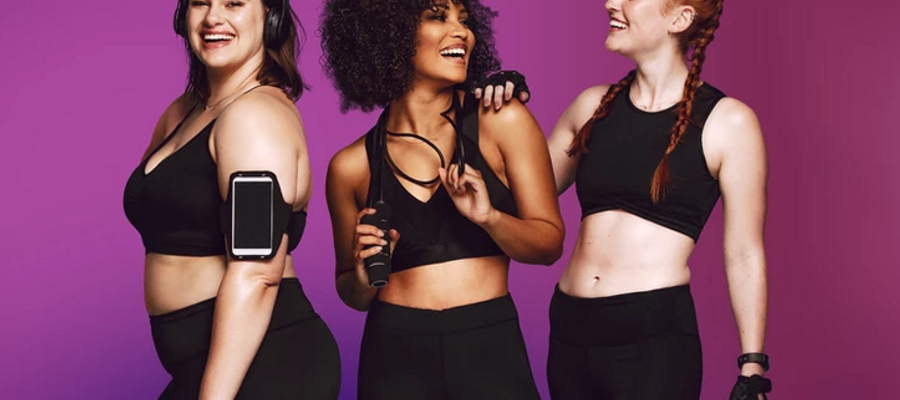While marketing to diverse groups has always been a successful strategy for some brands in order to sell products, it’s now become a priority for all major brands who want to stay relevant. But how well do brands navigate the difficult ground of diversity marketing campaigns?
Not only do brands want to appeal to large audiences but they now also want to embrace diversity, equality and represent the previously under-represented. Diversity is important and should be championed, and so diversity focused marketing campaigns are becoming increasingly popular, with many brands issuing mission statements and diversity pledges.
This is great news for minorities with the increase of positive representation, but are brands creating diversity marketing in the right way and for the right reasons?
It’s a tricky area and with each diversity campaign there seems to be a response of both positive and negative comments. Many charity and campaign groups also question whether brands truly want to be inclusive, or if they have profit-driven motives?
Here’s a look some recent diversity marketing campaigns that caused a stir for both the right and the wrong reasons…
Channel 4 – Advert takeover
The most recent campaign to promote diversity and tackle online abuse was launched on Friday by Channel 4 who teamed up with Nationwide, Maltesers and McCain.
Using the companies’ existing ad campaigns, a selection of real social media posts were added in an overlay to raise awareness of the terrible impact of online abuse and encourage people to think about the consequences of their nasty comments. The campaign was supported by social media campaigns using the hashtag #TogetherAgainstHate. Channel 4 has also set up a support page for anyone that has been affected by the issues raised in the campaign.
Sport England – This Girl Can
The “This girl can” campaign was created by FCB Inferno for Sport England with the mission to encourage more women to get into sport and leisure activities across the UK. 2 million fewer (14- to 40-year-old) women take part in sport compared with men, despite the fact that 75% say they want to be more active.
“This girl can” took the concept that women are less likely to get involved in sport because of fears of body image judgement and family commitments, and flipped it on it’s head. Focusing on power, body positive representation and achievement, it was directed by acclaimed female director, Kim Gehrig. It was also supported by a social media campaign that used a tailored algorithm to send encouraging tweets to women who were tweeting about exercise.
The campaign was very successful with results showing that 1.6 million women have started exercising and the number playing sport is increasing faster than men.
Absolut – Equal Love
Absolut has long been a supporter of the LGBT community and a celebrator of creativity. One of its recent campaigns by Bartle Bogle Hegarty is called “Equal Love” and coincided with London Pride. It features a string of people from all genders, cultures and lifestyles taking part in a choreographed kissathon.
The campaign wanted to showcase the themes of acceptance and inclusion beyond the LGBT community with the kiss acting as a metaphor for acceptance across all walks of life. The brand has a long history of diversity campaigns, often showcasing the under-represented with beautiful creatives and cinematography. It also has a clear commitment to ‘transparency’ with one of its latest campaigns showing real and very brave Absolut employees working in the nude.
Proctor & Gamble – The Talk
‘My Black is Beautiful’ is a group that Proctor & Gamble started in 2006 “to spark a broader dialogue about black beauty.” Relaunching the initiative last year, they introduced the campaign ‘The Talk’ which addressed the conversation African Americans have with their children about racism and it received both praise and negative criticism.
The National Review accused P&G of “identity-politics pandering”, while others called it “race-baiting” and police groups accused the ad of fanning hatred against the police. However P&G stated that the campaign was intended, no matter how uncomfortable it may be, to spark debate about racism and was born out of brainstorming sessions discussing real experiences with racial bias.
Airbnb – Community Commitment
Airbnb have come under fire in recent years for incidents where guests have been discriminated against by Airbnb hosts and even their host’s neighbours. It hit its peak with the widely reported case of an Airbnb host in North Carolina USA, who made made hateful, racist posts in cancelling a booking by a black guest. The next day, the company announced that it had hired Laura Murphy of the American Civil Liberties Union in Washington to lead a review of Airbnb practices.
This kind of discrimination by some of its hosts posed a huge problem for Airbnb, as they don’t own of any of the properties they represent for booking. In order to address the behaviour of its hosts, Airbnb introduced the Airbnb Community Commitment, which is a policy outlining rules around discrimination, and if hosts decline to accept the policy they will no longer be able to advertise their property or host guests. Airbnb launched the commitment with a social media campaign, website advertising and video to support the new initiative.
Dove – Facebook Ad
Normally Dove is well know for promoting diversity in the beauty industry but it’s made a few costly mistakes in recent years. Most notably was a Facebook campaign that showed an African American woman changing into a Caucasian woman after using Dove lotion.
The now deleted advert received immediate backlash, being accused of promoting the message that darker skin was unclean. It received almost 3,000 negative comments with many calling for a boycott of Dove’s products.
Dove pulled the add with the statement: “This did not represent the diversity of real beauty which is something Dove is passionate about and is core to our beliefs, and it should not have happened. We have removed the post and have not published any other related content. We apologise deeply and sincerely for the offence that it has caused.”

Pepsi – Protest Ad
Now the stuff of legend, the ad from Pepsi starring Kendell Jenner was criticised for being poorly timed, insensitive and borrowing from black culture. At the height of the Black Lives Matter movement, the ad features Jenner attempting to make peace with police by offering them a Pepsi.
The online backlash was immense with accusations of belittling social injustices, and white privilege. Among those mocking the advert was Bernice King, who tweeted a photo of her father, civil rights leader Martin Luther King Jr, being confronted by a police officer at a protest march: “If only Daddy would have known about the power of Pepsi,” the tweet said.
It was ultimately taken down within 24 hours of its release with the statement: “Pepsi was trying to project a global a message of unity, peace and understanding. Clearly, we missed the mark, and we apologise. We did not intend to make light of any serious issue.”
A diversity focused marketing campaign can have a huge impact if it is done well. The best campaigns are the ones done for the right reasons and those that succeed are more about the message than they are about the brand. It’s key to ensure you have a clear and positive message and be sure to use diverse focus groups to discuss and critique your ideas. Diversity is important and it’s been proven that diverse workforces are more productive with higher morale.
If need help with diverse hiring strategies, take a look at our services

